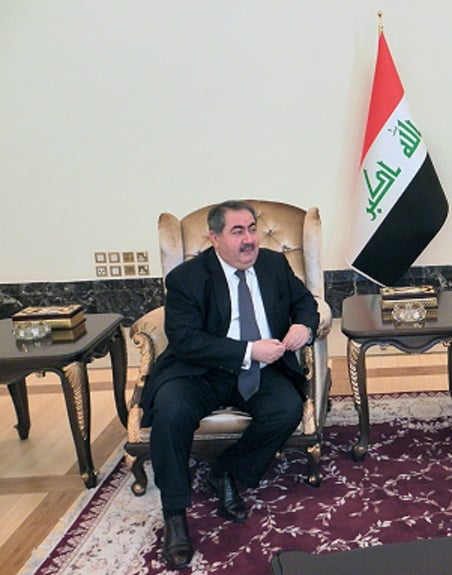Zebari in 2012 (Source: Flickr)
Iraq’s federal court has blocked Hoshyar Zebari’s presidential bid, as 2016 corruption claims could make his election ‘unconstitutional’. While the court reviews the case, Zebari is temporarily suspended. Zebari’s suspension is a setback to Moqtada al-Sadr’s effort to quickly form a majority government after the 2021 elections, of which his party is considered the winner. In reaction, MP’s from the Sadrist bloc said on Feb. 5 that his party would boycott the Feb. 7 parliament session on the new head of state. Members of other factions followed the boycott swiftly. The election of a new president is now stalled until further notice.
Zebari, a politician from the Kurdish Democratic Party (KDP), served as foreign minister from 2003-2014. He became finance minister, from which he was sacked after charges of corruption in 2016 – which he always denied. Zebari was forecasted to unseat incumbent president Saleh from the rival PUK party. The KDP, Sadrists and small Sunni factions lately engaged in an alliance to form Iraq’s first majoritarian government, forcing Iran-affiliated factions and the PUK into opposition.
Tensions rise over coalition formation
The suspension of Zebari provides a new chapter in Iraq’s political deadlock. After 17 years of ‘national unity’ governments, Iraq’s 2021 elections winners seem committed to forming a majority government, a first in the country’s post-2003 setup. The alliance of Iraq’s Shia, Sunni and Kurdish parties, led by al-Sadr all seemed positive of current developments in forming a new government, steering away of Iraq’s power-sharing arrangement in which all parties are involved. However, both inside as outside the halls of parliament, tensions rise over proposed majoritarianism – and violence remains an option for those who seem to fell out of the power-sharing arrangement.
On Jan. 9, a parliament session establishing Sunni politician Al-Halbousi (Taqaddum) as new speaker of parliament, was startled by chaotic scenes, leading to its oldest member being evacuated to hospital. On Jan. 14, an explosion from a hand grenade hit the headquarter of the Taqaddum party in Baghdad, wounding two guards. On Jan. 26, Halbousi’s home was targeted with rockets, after his election was confirmed by Iraq’s supreme court. It resulted in the wounding of two children.
Iraq’s political process remains difficult to predict as powerful forces compete for its elite political positions. Sadr’s bid for majoritarianism, steering away of power-sharing between all seems beneficial to political legitimacy – as the system of ‘all rule and no one accountable’ has delivered poorly to Iraqi society. However, forcing certain parties into opposition has a potential in destabilizing Iraqi society – in its parliament and beyond. Ultimately, the current political wrangling process for powerful positions provides little incentive for the disillusioned Iraqis to re-invigorate their trust in politics after the 2019 protests that rocked the country.
Sources:
Reuters Atlantic Council Al Arabiya Al Jazeera Al Monitor
Photo: Flickr

